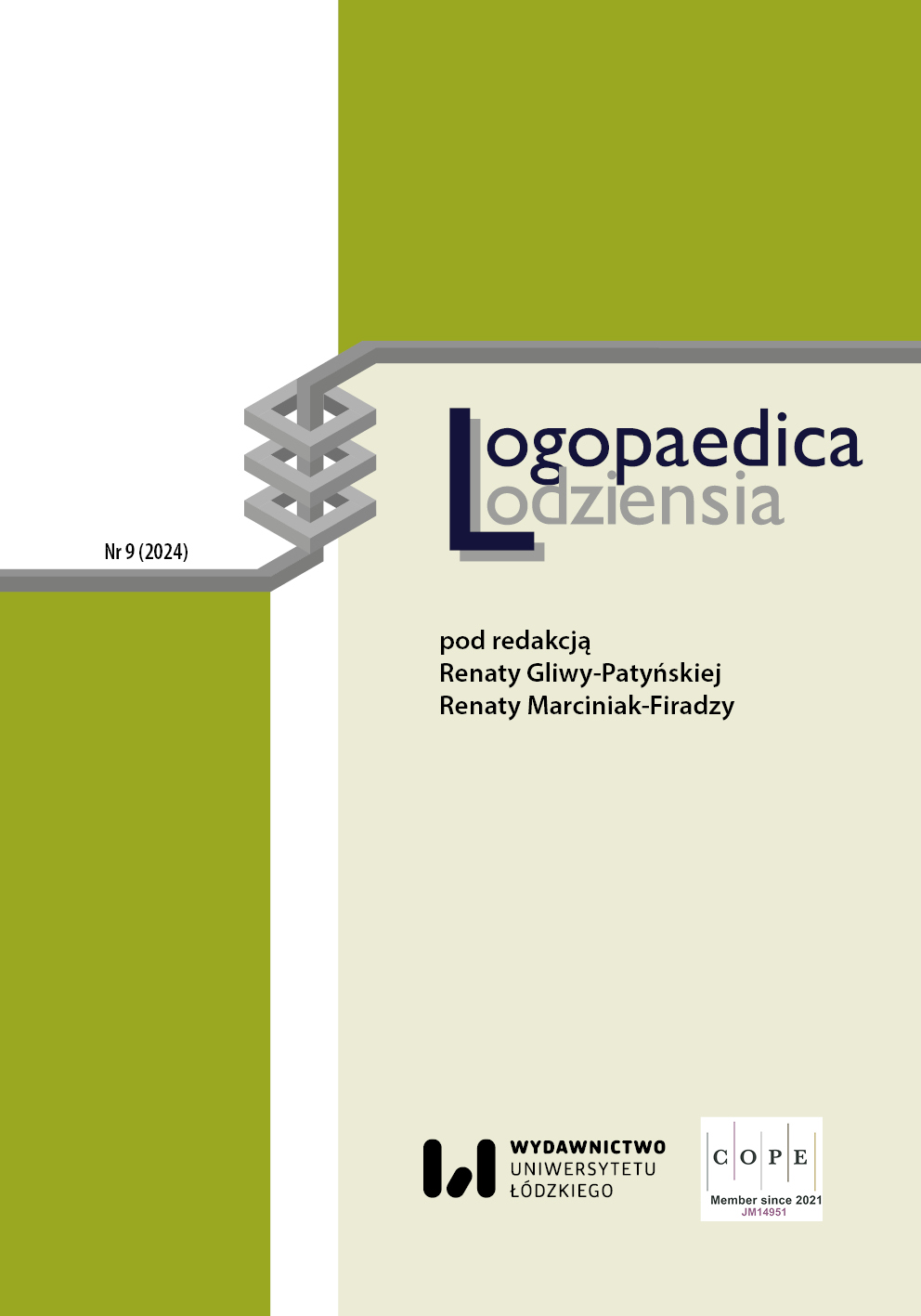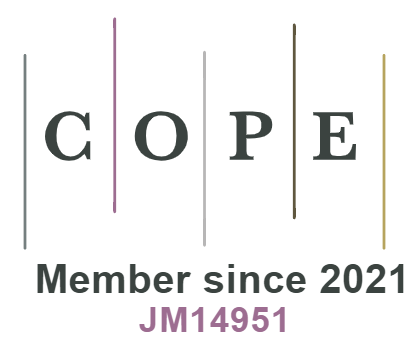Specialist Knowledge on the Sense of Smell and Readiness to Implement the Method of Participants in the Olfactor Therapy Method Training
DOI:
https://doi.org/10.18778/2544-7238.09.04Keywords:
smell, Olfactor Therapy Method, speech therapy, neurodidactics, knowledge, readiness, implementationAbstract
The article describes the function of the sense of smell in everyday life and outlines the characteristics of the Olfactor Therapy Method. The aim of the text is to present the results of research conducted in a group of therapists (mainly speech therapists) on changes in their knowledge of the area of smell (function, diagnosis and therapy) as a result of their participation in training in the above-mentioned method. One of the components of the Olfactor Therapy Method is its educational part, the aim of which is to promote knowledge on smell among specialists. The article shows that as a result of participating in the Olfactor Therapy Method training, the participants experienced an increase in the level of specialist knowledge about the sense of smell and were ready to implement it in their professional practice. Based on the analysis of the research results, it was concluded that there is a real need to organize workshops on olfactology for therapists (including speech therapists, special education educators.
Downloads
References
Barwich A.S., 2022, Węch. Co nos mówi umysłowi, Kraków: Copernicus Center Press.
Google Scholar
Bojarowicz H., Ziółkowska A., Krysiński J., 2016, Wyjątkowość zapachu, „Hygeia Public Health”, Vol. 51(2), s. 154–160.
Google Scholar
Czerniawska E., Czerniawska-Far J., 2009, Człowiek w świecie zapachów, Warszawa: Wydawnictwa Akademickie i Profesjonalne.
Google Scholar
Gilbert A., 2010, Co wnosi nos? Nauka o tym, co nam pachnie, Warszawa: Wydawnictwo W.A.B.
Google Scholar
Hamerlińska A., 2019a, Applying nasal airflow – inducing maneuvers with patients with hyposmia after total laryngectomy, „Contemporary Oncology”, Vol. 23(3), s. 141–145, https://doi.org/10.5114/wo.2019.86688
Google Scholar
DOI: https://doi.org/10.5114/wo.2019.86688
Hamerlińska A., 2019b, Węch przedmiotem badań również logopedii, „Logopedia”, nr 48(1), s. 187–201.
Google Scholar
Hamerlińska A., 2023, Olfactor – an invention for olfactory stimulation, Kraków: Jagielloński Instytut Wydawniczy.
Google Scholar
Hamerlińska A., w druku, The Olfactor Therapy Method in the field of pedagogical sciences: in neurodidactics, special pedagogy and speech therapy, „Lubelskie Roczniki Pedagogiczne”.
Google Scholar
Hummel T., Rissom K., Reden J., Hähner A., Weidenbecher M., Huttenbrink K., 2009, Effects of olfactory training in patients with olfactory loss, „Laryngoscope”, Vol. 119(3), s. 496–499, https://doi.org/10.1002/lary.20101
Google Scholar
DOI: https://doi.org/10.1002/lary.20101
Kopczyńska Ż., 2023, Sztuczna inteligencja w profilaktyce demencji, https://kognitywistyka.umk.pl/?task=news&action=one&id=31 (dostęp: 1.07.2024).
Google Scholar
Kotas R., 2021, Opracowanie obiektywnej metody detekcji i analizy zaburzeń w węchowych potencjałach wywołanych, seria „Monografie Politechniki Łódzkiej”, Łódź: Politechnika Łódzka.
Google Scholar
Kovács T., Cairns N.J., Lantos P.L., 1999, Beta-amyloid deposition and neurofibrillary tangle formation in the olfactory bulb in ageing and Alzheimer’s disease, „Neuropathology and Applied Neurobiology”, Vol. 25(6), s. 481–491.
Google Scholar
DOI: https://doi.org/10.1046/j.1365-2990.1999.00208.x
Marciniak-Firadza R., 2021, Zmysł węchu – istota, zaburzenia, diagnoza, terapia (Na przykładzie logopedy pracującego z dziećmi), „Logopedia”, nr 50(2), s. 169–183, https://doi.org/10.24335/zsxn-1e91
Google Scholar
DOI: https://doi.org/10.18778/2544-7238.06.10
Mydlikowska-Śmigórska A., Śmigórski K., Rymaszewska J., 2019, Specyfika funkcjonowania węchowego osób starszych. Różnice między starzeniem się fizjologicznym a patologią, „Psychiatria Polska”, nr 53(2), s. 433–446, https://doi.org/10.12740/PP/92272
Google Scholar
DOI: https://doi.org/10.12740/PP/92272
Odowska-Szlachcic B., 2010, Metoda integracji sensorycznej we wspomaganiu rozwoju mowy u dzieci z uszkodzeniami ośrodkowego układu nerwowego, Gdańsk: Wydawnictwo Harmonia.
Google Scholar
Rapiejko P., 2006, Zmysł węchu, „Alergoprofil”, nr 2, s. 4–10.
Google Scholar
Sadowski B., 2001, Biologiczne mechanizmy zachowania się ludzi i zwierząt, Warszawa: Wydawnictwo Naukowe PWN.
Google Scholar
Skangiel-Kramska J., Rogozińska K., 2005, Zmysł węchu – kodowanie zapachów – nagroda Nobla z fizjologii lub medycyny 2004 roku, „Kosmos. Problemy Nauk Biologicznych”, nr 54(2–3), s. 149–154.
Google Scholar
Sorokowska A., 2013, Seeing or smelling? Assessing personality on the basis of different stimuli, „Personality and Individual Differences”, Vol. 33, s. 175–179, https://doi.org/10.1016/j.paid.2013.02.026
Google Scholar
DOI: https://doi.org/10.1016/j.paid.2013.02.026
Uniwersytet Wrocławski, b.r., dr hab. Anna Oleszkiewicz prof. UWr, http://www.old.psychologia.uni.wroc.pl/?q=users/aoleszkiewicz (dostęp: 1.07.2024).
Google Scholar
Downloads
Published
How to Cite
Issue
Section
License

This work is licensed under a Creative Commons Attribution-NonCommercial-NoDerivatives 4.0 International License.
Funding data
-
Narodowe Centrum Nauki
Grant numbers 2023/07/X/HS6/01510












